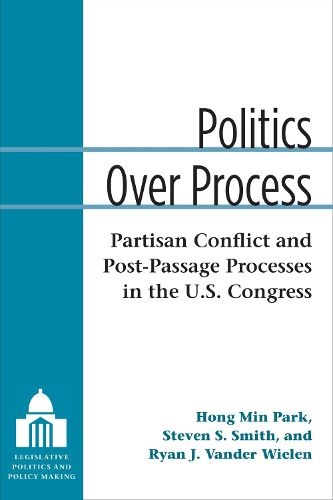Readings Newsletter
Become a Readings Member to make your shopping experience even easier.
Sign in or sign up for free!
You’re not far away from qualifying for FREE standard shipping within Australia
You’ve qualified for FREE standard shipping within Australia
The cart is loading…






Although the U.S. Constitution requires that the House of Representatives and the Senate pass legislation in identical form before it can be sent to the president for final approval, the process of resolving differences between the chambers has received surprisingly little scholarly attention. Hong Min Park, Steven S. Smith, and Ryan J. Vander Wielen document the dramatic changes in intercameral resolution that have occurred over recent decades, and examine the various considerations made by the chambers when determining the manner in which the House and Senate pursue conciliation. Politics Over Process demonstrates that partisan competition, increasing party polarization, and institutional reforms have encouraged the majority party to more creatively restructure post-passage processes, often avoiding the traditional standing committee and conference processes altogether.
$9.00 standard shipping within Australia
FREE standard shipping within Australia for orders over $100.00
Express & International shipping calculated at checkout
Although the U.S. Constitution requires that the House of Representatives and the Senate pass legislation in identical form before it can be sent to the president for final approval, the process of resolving differences between the chambers has received surprisingly little scholarly attention. Hong Min Park, Steven S. Smith, and Ryan J. Vander Wielen document the dramatic changes in intercameral resolution that have occurred over recent decades, and examine the various considerations made by the chambers when determining the manner in which the House and Senate pursue conciliation. Politics Over Process demonstrates that partisan competition, increasing party polarization, and institutional reforms have encouraged the majority party to more creatively restructure post-passage processes, often avoiding the traditional standing committee and conference processes altogether.